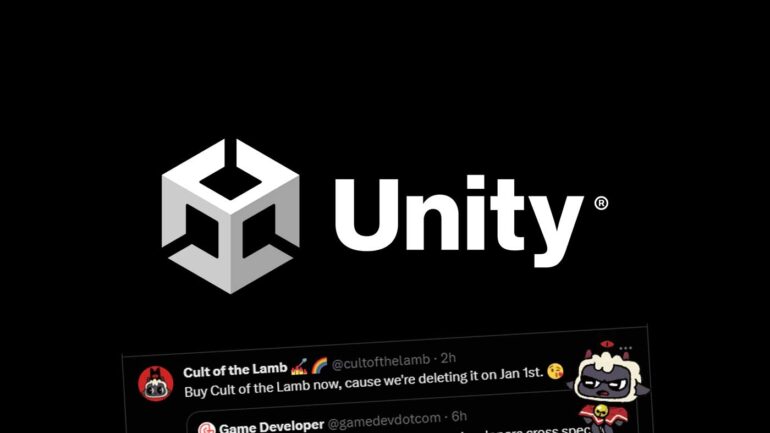Update #2: Unity has provided even further clarification on some of the contentious points raised in its botched attempt to spin a new “install fee” scheme to developers across the globe as a good thing, reiterating that devs won’t be charged for multiple installs of a game (on the same system) and won’t be charged fees for trials, demos or charity bundles.
Whether or not this does anything to satisfy small developers concerned with bleeding money just for making affordable, popular games remains to be seen.
We want to acknowledge the confusion and frustration we heard after we announced our new runtime fee policy. We’d like to clarify some of your top questions and concerns:
Who is impacted by this price increase: The price increase is very targeted. In fact, more than 90% of our…
— Unity (@unity) September 13, 2023
Update: Unity has reportedly already “regrouped” regarding some of its upcoming changes, and has now clarified that only the first installation of a game will incur a few, that demos “mostly” won’t incur fees and that developers aren’t on the hook for their titles being installed through services like Game Pass.
While the clarification is welcome, this obviously doesn’t do much to change the overall sentiment described below.
NEW – I got a major update from Unity about their new fees
– Unity "regrouped" and now says ONLY the initial installation of a game triggers a fee
– Demos mostly won't trigger fees
– Devs not on the hook for Game PassMore here:https://t.co/GCKjEeFtYR
— Stephen Totilo (@stephentotilo) September 13, 2023
Super-popular game engine Unity has announced a new royalty structure for developers using its platform, where as of January 1st, 2024, it’ll charge developers a fee every time a game built on Unity Engine is installed.
This fee is designed to kick in once a developer’s title reaches a revenue threshold of $200,000 USD over 12 months, and when it’s been installed 200,000 times, with varying levels of fee being charged based on a number of factors including whether the developer is signed up to a paid Unity license, how many installs have occurred and whether or not they’re in what’s classified as an “emerging market,” with fees going as high as $0.20 USD per install.
That distinction between total revenue and installs as a threshold is important too, because what this is essentially doing is allowing Unity to take a cut from free-to-play games, or even games placed in charity bundles and subscription services like Xbox Game Pass, where a purely revenue-based scheme would’ve seen them get nothing. It also means that developers will have to pay Unity for every person that installs a game, whether that person paid the developer for it directly or got it through a subscription service. In fewer words, it’s a bit shit.

It hasn’t taken long for developers, largely those in the indie space who rely on platforms like Unity and will continue to rely on it, to voice their disapproval of this move, including the folks behind some pretty high-profile titles like Cult of the Lamb and highly-anticipated releases like Aggro Crab.
Buy Cult of the Lamb now, cause we're deleting it on Jan 1st. ? https://t.co/nSWg9DP0sh
— Cult of the Lamb ? ? (@cultofthelamb) September 12, 2023
SIGH pic.twitter.com/YgJEKGVQEI
— AGGRO CRAB (@AggroCrabGames) September 12, 2023
Aussie indie dev behind the very handsome upcoming Dead Static Drive, Mike Blackney, pointed out the ridiculousness of the math behind the whole thing which, for “freemium” titles made with Unity Engine (Genshin Impact, Fall Guys and many other are builty on it) has the potential to even wipe out or reverse revenue made on selling in-game items:
> make a game
> game is fremium
> game makes 200k from in-app purchases after being installed 3 million times
> now owe Unity 20c per 2.8M installs, $560K
> that’s 360K more than we made https://t.co/6fe6Ob35Oj— michael j foxney ? (@kurtruslfanclub) September 12, 2023
It’ll certainly be interesting to see how Unity responds to what is quite unanimously a giant middle finger to this new deal, and whether or not it walks back or alters what it’s proposed.



